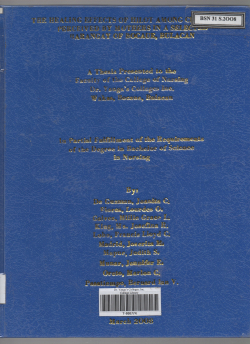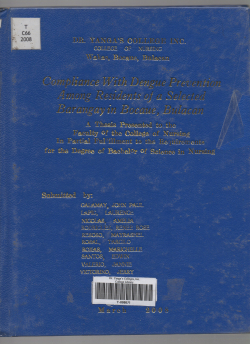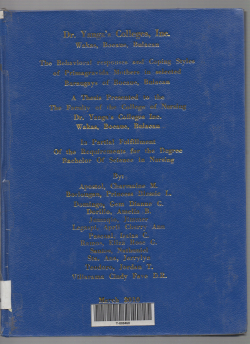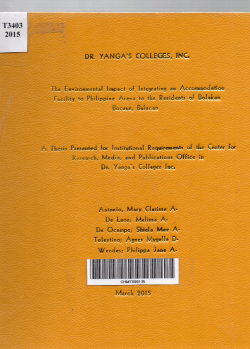AN ANALYSIS ON THE MATE SELECTION PREFERENCES OF THE SELECTED MARRIED CITIZENS OF BOCAUE, BULACAN

Type
Thesis
Category
CAS
[ Browse Items ]
Subject
Married Citizen
Abstract
Mate selection is a broad topic to discuss or to study. Still there is no research done that determines the exact “standards” of the people of the society when it comes to choosing marital partner. Mate choice for marriage is clearly a crucial decision, and surprisingly, little is known about the characteristics that men and women seek in potential mate. Neither men nor women prefer all members of the opposite sex equally, but some are favored over the others. One important research task is to identify the characteristics that married individuals from the three selected barangays of Bocaue, Bulacan considered important in coming up with the decision of marrying their partners. The researchers aim to document (1) the mate characteristics that are consensually more and less desired, (2) the mate characteristics that show strong sex differences in their preferred value, and (3) the degree to which married couples are correlated in selection preferences. The study was conducted at the barangays Bambang, Bagumbayan, and Biñang 1St that has 30 respondents each which makes the 90 respondents that comprise the population of the study. The researchers utilized the descriptive survey research method. In order to evaluate the survey responses, a measurement scale is used on the questionnaire wherein; 5 — Positive, 4 — Somewhat Positive, 3 — Neutral, 2- Somewhat Negative, and 1 — Negative. The questionnaire has all factors to be assessed. Specifically, (1) personal preferences, (2) peer pressure, (3) religion/culture, (4) legality, and (5) social standing. Necessary data were gathered for the study. There were equal number of male and female respondents, 45 male (50%) and 45 female (50%). The study is focused on the standard adults with ages ranging from 20-40(37%, early adults), 40-64(61%, middle adults), and 65-above(2%, late adults). In terms of religion, most of the respondents are Catholic having 68 (76%), followed by Born-Again Christians with 14 (16%) and the least, Iglesia Ni Cristo with 8 (8%). The study shows that gender and age differences did not affect the respondents’ preferences/decision. On the other hand, the respondents agree that Legality is the most influential factor having an Average Weighted Mean of 4.36, followed by Personal Preferences with 4.33. Surprisingly, Religion/Culture ranked only third with an Average Weighted Mean of 4.29, followed by Peer Pressure with 4.18, and lastly, Social Standings with 4.16. In this kind of society (Philippines) that values religion and culture a lot, it is least expected that Religion/Culture will just be the third most influential out of the five (5) factors. With the fact that all of them came from the same area/municipality, the same social orientation and environment of all the respondents might be the answer why there are no big differences between the results of all the assessed factors. The researchers recommend that the school or the government should conduct a more thorough study on the factors that affect the citizens’ decision on how they select their mate; to be conducted on a larger crowd from different areas of the country in order to establish a better understanding in this particular matter.
Number of Copies
1
| Library | Accession No | Call No | Copy No | Edition | Location | Availability |
|---|---|---|---|---|---|---|
| Main | 692 | T An256 2015 | 1 | Yes |




